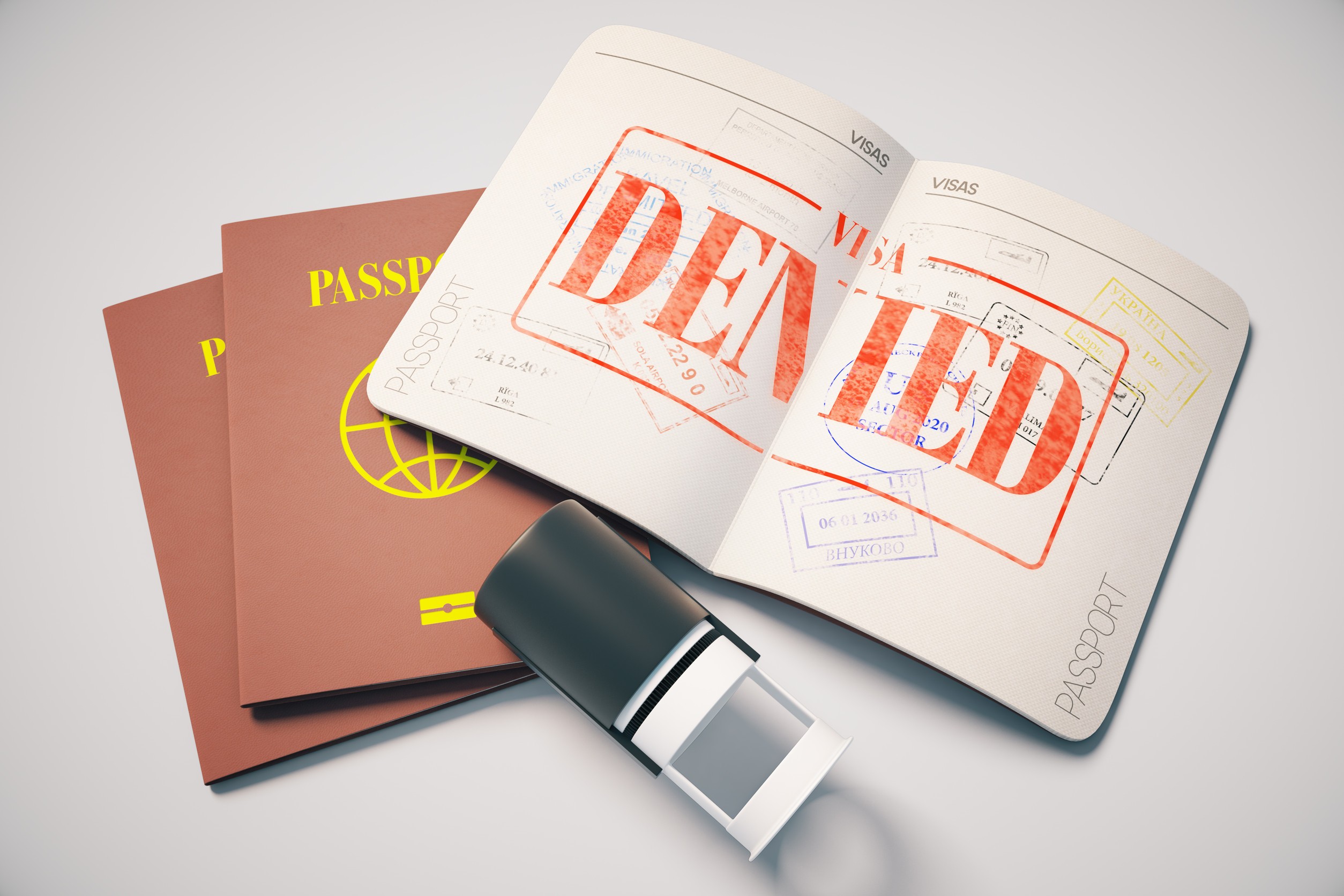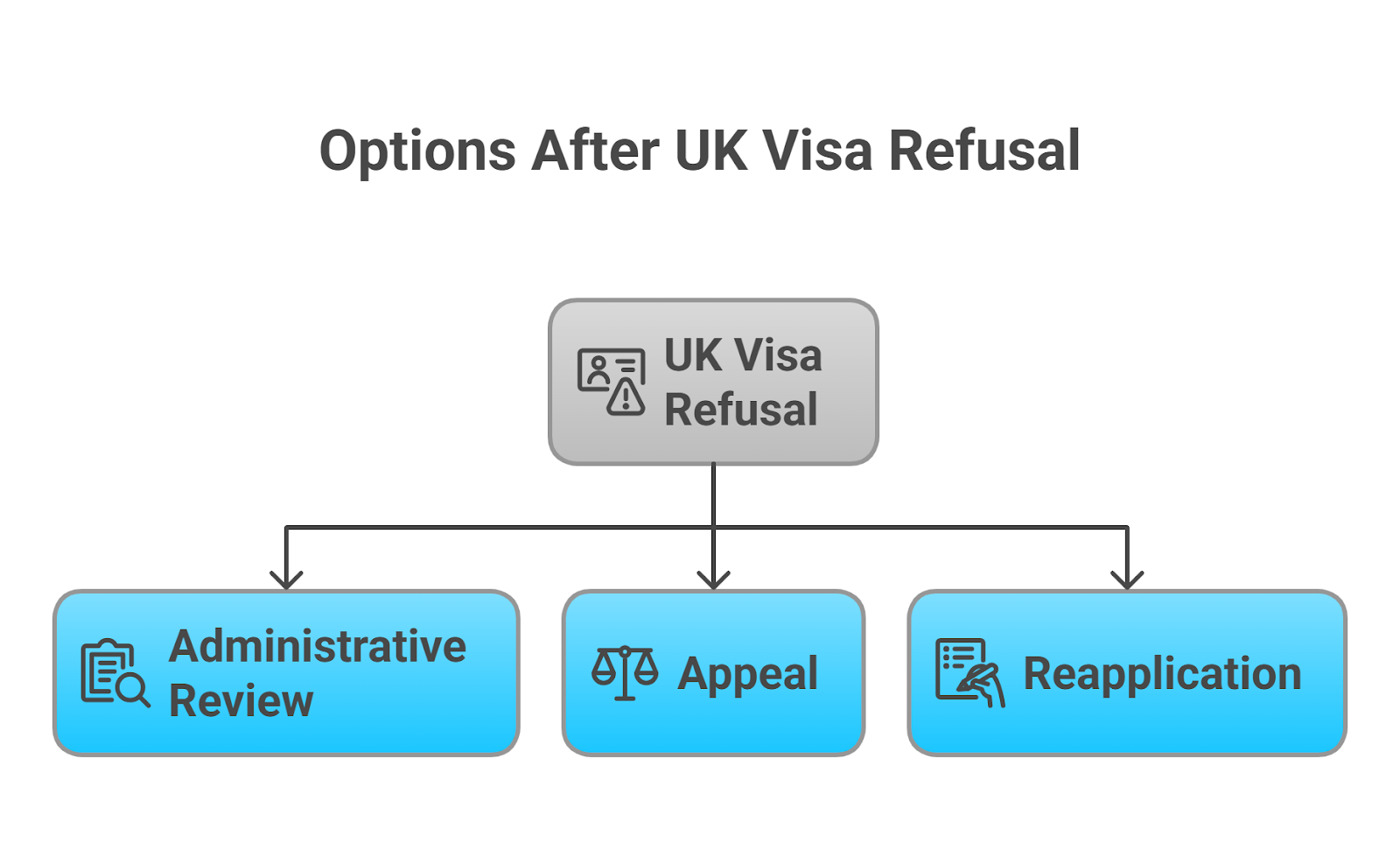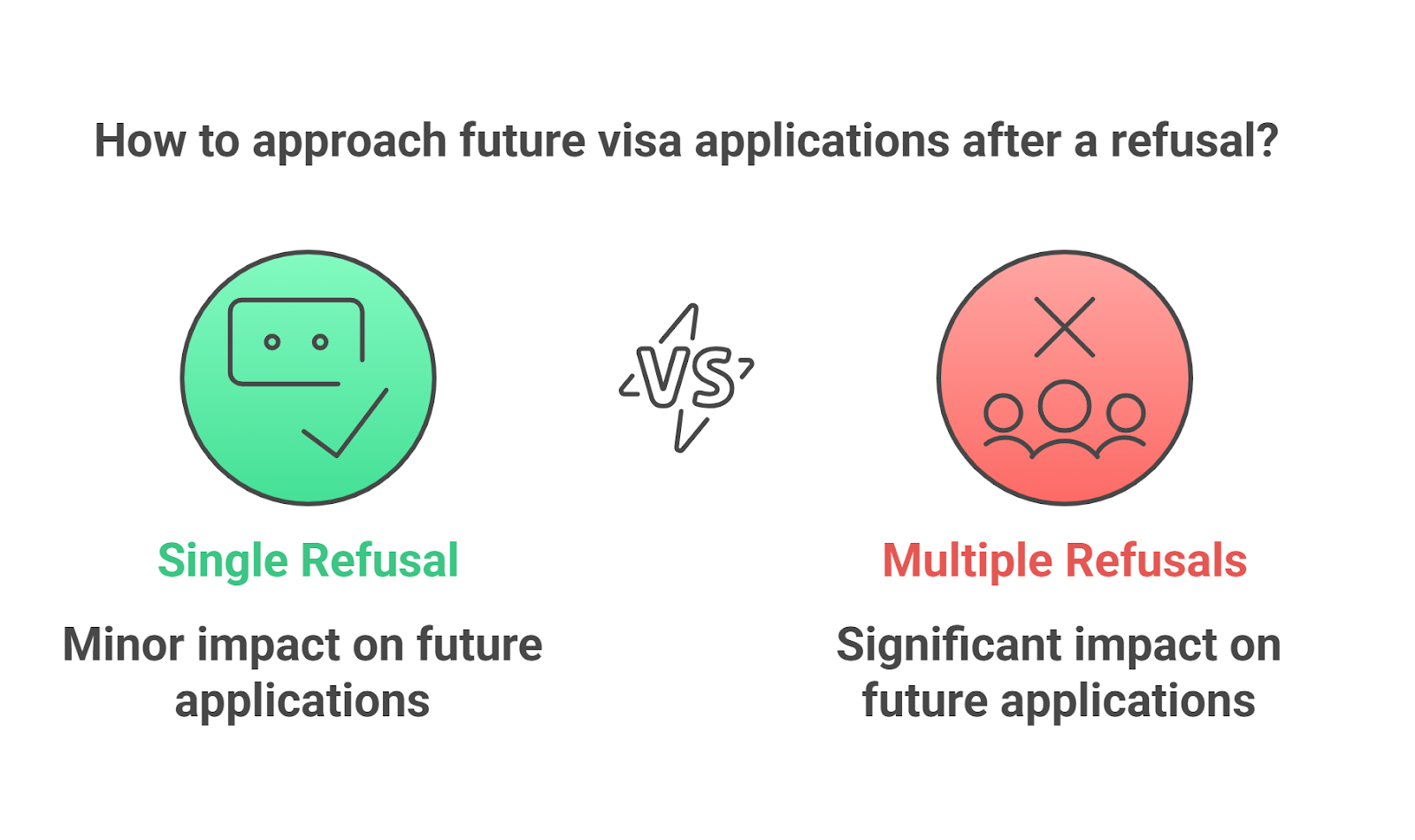
Applying for a UK visa can be an exciting yet stressful process. Unfortunately, not all visa applications are successful. A visa refusal can be disheartening, especially if you had plans for work, study, family reunification, or tourism. However, understanding why UK visa refusals happen — and what you can do next — can help you manage the situation effectively and plan your next steps.
Common Reasons for UK Visa Refusals
Visa refusals happen for various reasons, but some of the most common include:
a. Incomplete or Incorrect Application
Missing information, errors in the application form, or failure to submit required documents can easily lead to a refusal. In fact, failing to meet the specific documentary and procedural requirements is one of the leading causes of UK visa rejections.
b. Failure to Meet Financial Requirements
Many visa categories require proof that you can financially support yourself and any dependents. Inadequate bank statements, unexplained deposits, or insufficient funds can raise red flags and result in a visa refusal.
c. Weak Ties to Home Country
Applicants, especially for visitor visas, must prove strong reasons to return home after their trip to the UK. Weak ties — such as lack of employment, family obligations, or property ownership — may cause the Home Office to believe the applicant intends to overstay.
d. Submission of False or Misleading Information
Submitting fake documents, providing false statements, or misrepresenting your situation can lead to a visa refusal. In serious cases, this can trigger a 10-year ban from entering the UK.
e. Criminal Records or Immigration History Issues
A history of criminal convictions or previous violations of immigration laws, such as overstaying or deportations, can negatively impact your current visa application.
f. Failure to Meet English Language or Health Requirements
Certain visas, like Student and Work visas, require applicants to meet specific English language standards. Health checks, such as tuberculosis tests for applicants from certain countries, are also mandatory, and failure to meet these requirements can result in a refusal.
g. Doubts About Genuine Relationships (Family Visas)
For family-based visas, such as spouse or partner visas, the Home Office must be convinced that the relationship is genuine and ongoing. Lack of sufficient and convincing evidence can raise doubts and lead to a refusal.
How Will You Be Notified of a UK Visa Refusal?
If your UK visa is refused, you will receive a refusal letter explaining:
- The reasons for refusal
- Whether you have a right to appeal, request an administrative review, or reapply
- Any restrictions or bans imposed on future applications
It's essential to read this letter carefully, as it will guide your next steps.
What Are Your Options After a UK Visa Refusal?
You typically have three options:
1. Administrative Review
If you believe the Home Office made a factual or legal mistake in handling your application, you can request an administrative review. This option is commonly available for points-based visas, such as Skilled Worker or Student visas. You must submit your request within 14 or 28 days, depending on whether you applied inside or outside the UK.
2. Appeal
Appeals are allowed in specific circumstances, mainly involving human rights claims such as family visas, asylum, or protection cases. The appeal process involves a tribunal hearing and can take several months to reach a decision.
3. Reapplication
In many situations, it is better to address the reasons for refusal and submit a fresh application. When reapplying, make sure all previous mistakes are corrected and provide stronger, clearer supporting evidence to improve your chances of approval.

How to Avoid a UK Visa Refusal
While not every refusal is avoidable, you can improve your chances of success by:
- Completing the application carefully: Take your time and double-check every detail.
- Submitting all required documents: Follow the Home Office document checklist precisely.
- Proving financial stability: Provide clear, genuine, and detailed financial evidence.
- Demonstrating strong ties to your home country (for visitors): Include evidence such as employment letters, family responsibilities, property deeds, or education commitments.
- Being honest: Never submit false or misleading information.
- Seeking professional advice: If your case is complex, consider consulting an immigration lawyer or adviser.
Can a UK Visa Refusal Affect Future Applications?
Yes, a visa refusal will be recorded in your immigration history and must be
disclosed in future visa applications.
However:
- A single refusal, especially for minor reasons, usually does not bar you from future success.
- Multiple refusals, especially for deception or serious issues, can significantly harm your chances.

It’s crucial to handle your refusal carefully to minimize long-term consequences.
Special Case: UK Visa Refusal Due to False Documents
Submitting false documents is one of the most serious issues. If the Home Office believes you knowingly submitted fraudulent documents, you could face:
- A 10-year ban on entering the UK.
- Future visa refusals even if you apply correctly later.
Always provide genuine documents and be transparent about your circumstances.
Timeline After a UK Visa Refusal
After a UK visa refusal, applicants have several options depending on the type of visa and reasons for refusal. It's important to act promptly and choose the right path based on your circumstances.
Administrative Review: Request within 14 or 28 days. Decision usually within 28 days.
Appeal: Must lodge within 14 days if in the UK (or 28 days if outside the UK). The appeal process can take several months.
Reapplication: No specific time limit, but advisable to address refusal reasons before reapplying.
Final Tips
Facing a UK visa refusal can be stressful, but understanding your options and responding strategically can make all the difference
- Stay Calm: A refusal, while frustrating, is not necessarily the end of the road.
- Act Quickly: Deadlines for appeals and reviews are strict.
- Get Professional Help if Needed: Immigration lawyers can greatly increase your chances of success on appeal or reapplication.
- Learn from the Refusal: Carefully address every reason listed in the refusal notice when reapplying.
Conclusion
Facing a UK visa refusal can be stressful, but it is important to understand why it happened and how best to respond. Whether you choose to appeal, request a review, or reapply, thorough preparation and addressing the refusal reasons are crucial. By staying informed, proactive, and honest, you can improve your chances of achieving a successful outcome and pursuing your dreams in the United Kingdom.
Frequently Asked Questions
Yes, you can reapply at any time unless your refusal letter specifically bans you. However, it’s crucial to fix the issues that caused the first refusal before submitting a new application.
Yes, all refusals must be disclosed in future applications. A well-explained previous refusal, especially for minor issues, usually does not prevent success if corrected properly.
No, visa application fees are generally non-refundable even if the application is refused.
It’s not mandatory, but hiring an experienced immigration adviser can greatly improve your chances of success, especially for appeals or complicated cases.
If the Home Office believes you knowingly submitted fake documents, it could lead to serious consequences, including bans. If it was an honest mistake, provide evidence to explain it as soon as possible.
You can still apply for a visa to visit the UK after a refusal, but you must fully address the previous refusal reasons. Honesty and strong supporting evidence are critical.
Content Disclaimer: While this information was last updated in January 2026, we strongly suggest confirming all travel details with the appropriate governmental agencies, embassies, and airlines.
